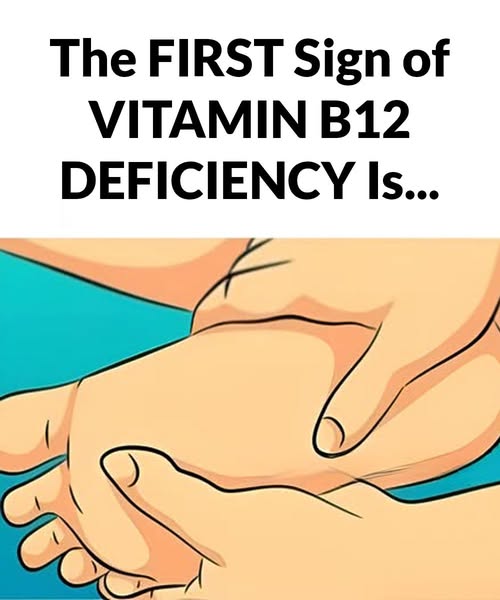Vitamin B12 Deficiency: 9 Symptoms You Should Never Ignore
Vitamin B12, also known as cobalamin, is an essential nutrient that plays a critical role in keeping our body functioning at its best. It’s responsible for helping the body produce red blood cells, support nerve health, and assist in the formation of DNA, the genetic material in all cells. Because it’s so vital, a deficiency in vitamin B12 can lead to serious health complications if left untreated.
Our bodies cannot produce B12 on their own, which means we must obtain it through diet or supplements. Foods rich in vitamin B12 include meat, fish, dairy products, and eggs. Vegetarians and vegans are especially at risk of deficiency since plant-based foods generally do not contain B12 unless fortified.
Here are nine key symptoms that may signal you’re not getting enough vitamin B12, along with common causes of the deficiency:
1. Persistent Fatigue or Weakness
One of the earliest and most common signs of B12 deficiency is constant tiredness. Without enough B12, your body struggles to make red blood cells, which transport oxygen. As a result, you may feel drained even after a full night’s sleep.
2. Pale or Jaundiced Skin
Vitamin B12 is essential for red blood cell production. A deficiency can lead to megaloblastic anemia, a condition where red blood cells are large and fragile, leading to breakdown. This can cause paleness or even yellowing of the skin and eyes (jaundice).
3. Tingling or Numbness in Hands and Feet
Low levels of B12 can damage the myelin sheath, the protective layer surrounding nerves. This may cause strange sensations such as tingling, numbness, or even burning in the hands and feet.
4. Difficulty Walking or Balance Issues
As the nervous system deteriorates from lack of B12, coordination and balance may suffer. You might feel clumsy or find yourself tripping more than usual.
5. Glossitis and Mouth Ulcers
A sore, swollen tongue with a red, smooth appearance (known as glossitis) can be a symptom. Some people also develop mouth ulcers, a burning sensation in the mouth, or a metallic taste.
6. Breathlessness and Dizziness
Anemia caused by B12 deficiency can lead to shortness of breath, dizziness, or even feeling faint, especially during physical activity.
7. Mood Changes and Mental Fog
Vitamin B12 also supports mental health. Deficiency has been linked to depression, irritability, memory problems, and difficulty concentrating—sometimes referred to as “brain fog.”
8. Vision Problems
In rare cases, B12 deficiency can damage the optic nerve, leading to blurred vision or even vision loss. Thankfully, this can often be reversed with treatment.
9. High Levels of Homocysteine
Low B12 levels can lead to a buildup of homocysteine, an amino acid linked to heart disease and stroke. Blood tests can reveal elevated levels.
Common Causes of Vitamin B12 Deficiency
-
Poor diet (especially in vegans and vegetarians)
-
Malabsorption issues (such as in people with Crohn’s disease or celiac disease)
-
Pernicious anemia (an autoimmune condition affecting absorption)
-
Chronic alcohol use
-
Aging (reduced stomach acid levels can limit absorption)
-
Certain medications (like metformin or proton pump inhibitors)
Conclusion
Vitamin B12 is more than just another supplement—it’s a vital nutrient your body needs daily. If you’re experiencing any of the symptoms above, especially if you fall into one of the risk categories, it may be worth speaking to your healthcare provider about testing your B12 levels. Early diagnosis and treatment, usually through diet changes or supplements, can prevent serious long-term complications.

